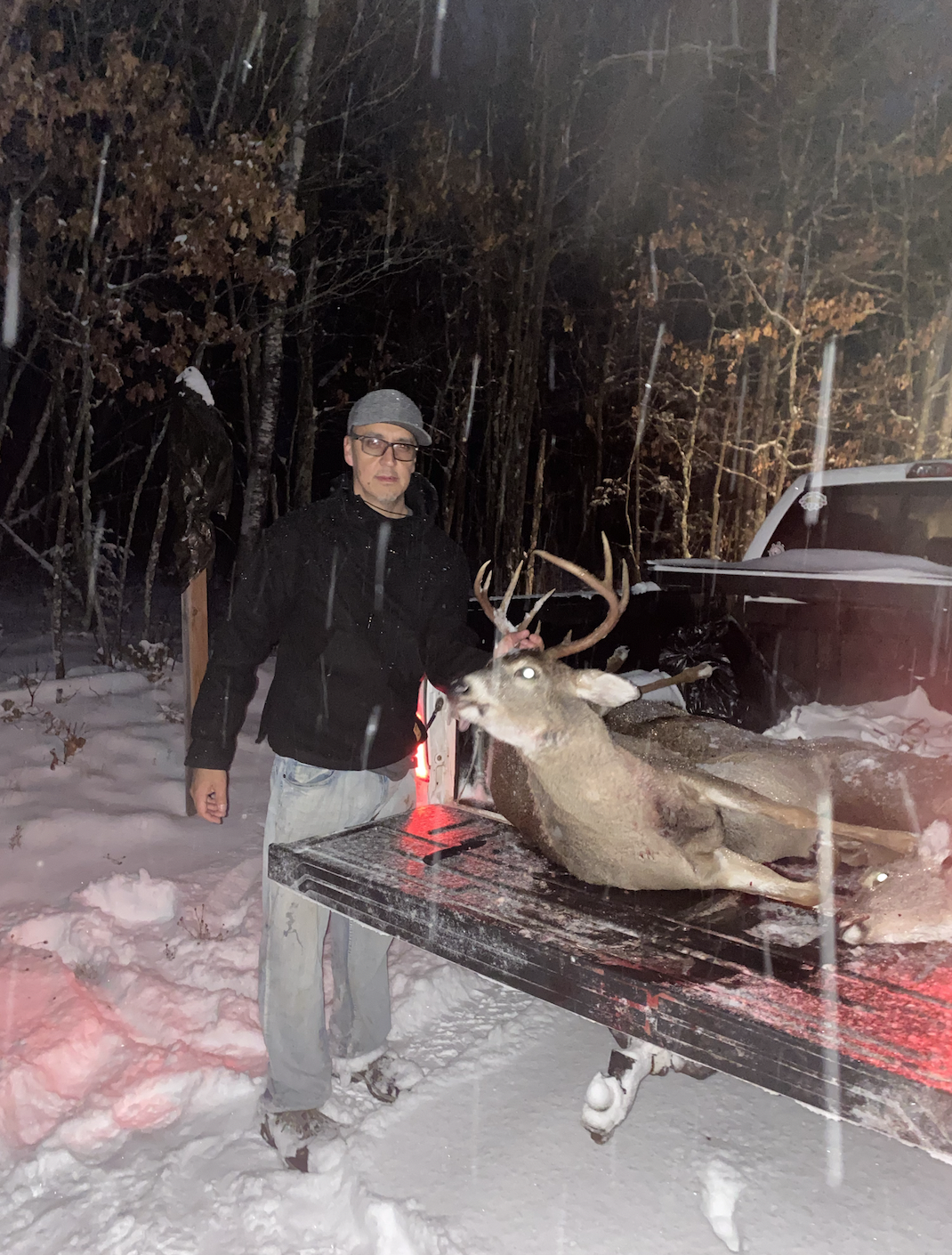
- Details
- By Darren Thompson
On January 7, 2022, the Great Lakes Indian Fish & Wildlife Commission (GLIFWC) issued an amendment extending the tribal deer season to January 31, 2022. Normally, the tribal deer season ends during the first Sunday of January, which would have been January 9, 2022, but has been extended to mirror the state’s deer season. The state has extended non-tribal bow hunting through January 31st. The tribal hunting season extension permits tribal members to continue to hunt by firearm as well as bow. The season applies to the Wisconsin portions of the 1837 and 1842 ceded territory.
“The Tribes will amend the Model Code thereby extending the tribal deer season so that the tribal deer season may always be opened as long as the state deer season,” said GLIFWC Executive Administrator Michael J. Isham in a letter to participating Wisconsin Tribes dated January 7, 2022.
“Back when our people were living in a time without stores, electricity and freezers, families had to hunt and gather solely from the land,” said Lac du Flambeau Tribal member Greg Biskakone Johnson to Native News Online. “There was no limiting on any game seasons because one’s level of hunger or starvation was the one thing that regulated that. Any meat that was harvested during the winter months was a life saving gift from nature.”
Formed in 1984, GLIFWC is an agency that assists eleven Ojibwe tribes in Michigan, Wisconsin, and Minnesota in implementing off-reservation treaty seasons and in protecting treaty rights and natural resources. The eleven Ojibwe tribes retain off-reservation treaty rights to hunt, fish, and gather in treaty-ceded lands. The organization also provides natural resource management expertise, conservation enforcement, legal and policy analysis, and public information services.
The eleven Ojibwe member tribes that oversee GLIFWC are the Mille Lacs Band of Ojibwe (Minnesota), Fond du Lac Band of Ojibwe (Minnesota), St. Croix Band of Ojibwe (Wisconsin), Red Cliff Band of Lake Superior Chippewa (Wisconsin), Bad River Band of Lake Superior Chippewa (Wisconsin), Lac du Flambeau Band of Lake Superior Chippewa (Wisconsin), Mole Lake Band of Ojibwe (Wisconsin), Lac Courte Oreilles Band of Lake Superior Chippewa (Wisconsin), Bay Mills Indian Community (Michigan), Keweenaw Bay Indian Community (Michigan), and Lac Vieux Desert Band of Lake Superior Chippewa (Michigan). Collectively, they steer the direction and policy for the organization.
In Wisconsin, there are often disputes between Wisconsin’s Tribes and the state over harvesting. In the 1837 and 1842 treaties, Ojibwe tribes ceded 22,400 square miles of northern Wisconsin to the federal government on the condition that fishing, hunting, and other rights, such as gathering of wild rice, would be honored. The agreements guide the number of commercial and sport fishing licenses that may be issued to non-Tribal members, the lengths of fishing seasons, the kinds of equipment that can be used and where equipment can be used.
More Stories Like This
Native News Weekly (August 25, 2024): D.C. BriefsUS Presidents in Their Own Words Concerning American Indians
Monday Morning: (January 5, 2026): Articles You May Have Missed This Past Weekend
Native News Weekly (January 4, 2026): D.C. Briefs
What Native American Members of Congress Are Saying about the Venezuela Operation
Help us defend tribal sovereignty.
At Native News Online, our mission is rooted in telling the stories that strengthen sovereignty and uplift Indigenous voices — not just at year’s end, but every single day.
Because of your generosity last year, we were able to keep our reporters on the ground in tribal communities, at national gatherings and in the halls of Congress — covering the issues that matter most to Indian Country: sovereignty, culture, education, health and economic opportunity.
That support sustained us through a tough year in 2025. Now, as we look to the year ahead, we need your help right now to ensure warrior journalism remains strong — reporting that defends tribal sovereignty, amplifies Native truth, and holds power accountable.
 The stakes couldn't be higher. Your support keeps Native voices heard, Native stories told and Native sovereignty defended.
The stakes couldn't be higher. Your support keeps Native voices heard, Native stories told and Native sovereignty defended.
Stand with Warrior Journalism today.
Levi Rickert (Potawatomi), Editor & Publisher
